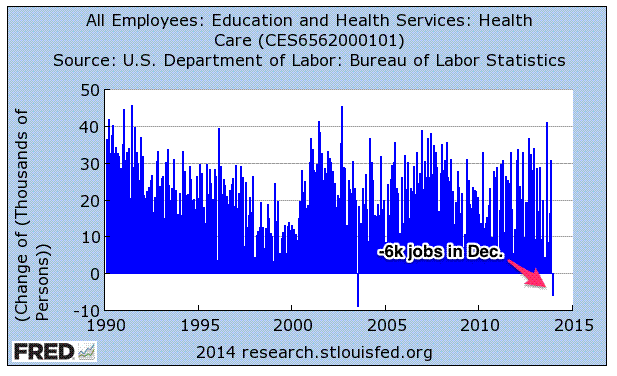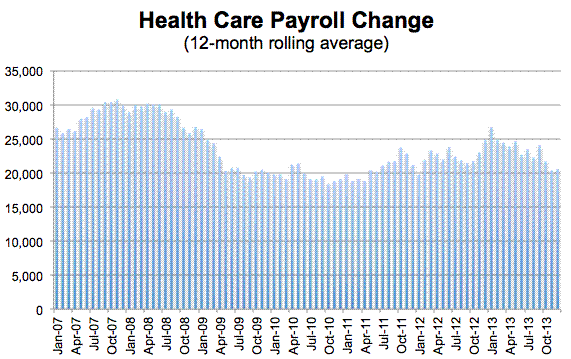Bloomberg Businessweek
The U.S. Lost Health-Care Jobs in December
Something rare happened at the end of 2013: The U.S. health-care
industry lost jobs, according to the Department of Laborfs payrolls
report released on Friday. The last time that happened was in July 2003.
Herefs the chart:

Payrolls dropped
at nursing homes, home health agencies, hospitals, and doctorsf offices.
Outpatient care centers gained jobs.
This is only a single monthly
jobs report. Decemberfs decline in health-care jobs might be a blip that could
be revised to a gain in future months. But the industry did slow hiring in 2013.
A look at the average job gains in health care over the last 12 months shows the
sector adding about 21,000 a month, compared with 25,000 per month the year
before.

The health-care workforce will continue to expand as Americafs population
increases and ages. At the same time, the U.S. health-care system has plenty of
fat to cut in redundant tests, unnecessary treatments, and expensive care
delivered in the emergency room for conditions that could be treated earlier at
lower cost.
Private insurers and the government are in the middle of a years-long effort
to arrest the growth of spending that doesnft make people
healthier. Economists arenft yet sure whether the moderation
in health-care spending from 2009 to 2012 is a result of attempts to
contain costs, or a long hangover from the recession. If itfs the former, slower
growth in health-care jobs may become the norm. The flip side of a more
efficient health system is that you need fewer people to run it.